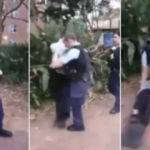What are the Penalties for Drug Possession?

The law surrounding drug possession can be complicated, particularly in instances where the drugs are found in shared premises for example.
You can be charged with drug possession even if the quantity of illegal substance found in your possession is very small.
If you are convicted of drug possession, the charges you face will vary, depending on the quantity and type of drugs, and whether or not you have any prior drug-related convictions.
What happens if drugs are found in shared premises?
If drugs are found in a shared house, in order to charge you with possession of drugs in shared premises, it needs to be proven that you have exclusive ownership of substances that are found in communal areas, such as the lounge room or kitchen, rather than in your private bedroom.
This charge can be difficult to prove, unless you admit that the drugs are yours, or the prosecution has evidence of you exclusively using the drugs.
In some cases where drugs are found in shared premises, the police may try to prove joint possession.
This is again difficult to prove, unless there is an admission from all the occupants of the house that the drugs are shared, or there are witnesses to all occupants using the drugs.
What are the likely penalties for drug possession?
Possession of drugs is a summary offence when the volume of drugs found is less than the indictable quantity, and there is no indication of intent to supply.
The maximum penalty for a summary offence is two years imprisonment, and a maximum fine of $5,500.
If you are caught in possession of larger quantities of drugs, your case will attract harsher penalties, going up to life imprisonment for large scale trafficking.
What are the sentencing statistics for drug possession?
The majority of drug possession cases are tried in the local court. According to the NSW Bureau of Crime Statistics and Research, only two people who were tried in the higher courts for drug possession in 2011 were convicted and sentenced to prison.
Other penalties that were meted out through the higher courts included suspended sentences with or without supervision, and behaviour bonds with supervision.
A total of 6,748 people were convicted of drug possession in local courts in 2011. Of these, only 87 received a prison term.
The most common penalty was a fine, followed by a bond without conviction. 471 people were found guilty with no conviction recorded.
What are the common defences to a drug possession charge?
Drug possession can be difficult to prove in many circumstances.
If you want to defend yourself against a drug possession charge, there are a number of effective defences.
If you can prove that the drugs were not yours, you may be able to have the charges dropped or withdrawn, also if the police found the drugs through an illegal search, you can apply to have the charges withdrawn.
What should I do if I have been charged with drug possession?
If you have been charged with drug possession, it is important to speak to a lawyer as soon as possible.
An experienced criminal defence lawyer can advise you of your best defence, and apply on your behalf to have charges withdrawn where appropriate.
Receive all of our articles weekly
Author






